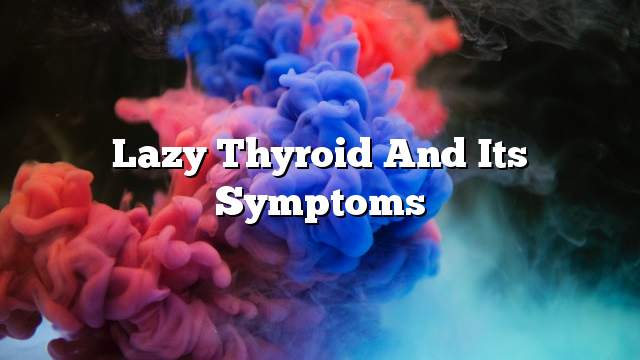The thyroid gland is a gland responsible for the mechanism of storing the body and its use of energy through thyroxine, which is produced, and is present in the neck.
Sometimes laziness occurs in this gland, leading to a lack of secretion of thyroxine and therefore lack of blood levels.
Symptoms of hypothyroidism include:
- Laziness and inactivity.
- Feeling cold and not tolerating the cold atmosphere in general.
- Menstrual disorders.
- Difficulty of pregnancy in women.
- Complications during pregnancy from early births and the impact of the fetal nervous system if the problem is not detected and treated since the beginning of pregnancy.
- Hypertension.
- The inability to exert effort and the feeling of exhaustion.
- High blood cholesterol.
Detecting thyroid dyslexia is easy by checking for blood to detect the level of the hormone if it is within normal or not.
Treatment is to compensate for the lack of the hormone, but the appropriate dose varies from person to person, so you should follow the work of periodic check-ups determined by the doctor.
Treatment of thyroxine is affected by the presence of food and some other treatments, so the most important advice given to the patient is to take the treatment before or after the food two hours to be affected by absorption, and taken separately from the rest of the treatments if the patient suffers from other health problems require treatment, especially iron and calcium .
